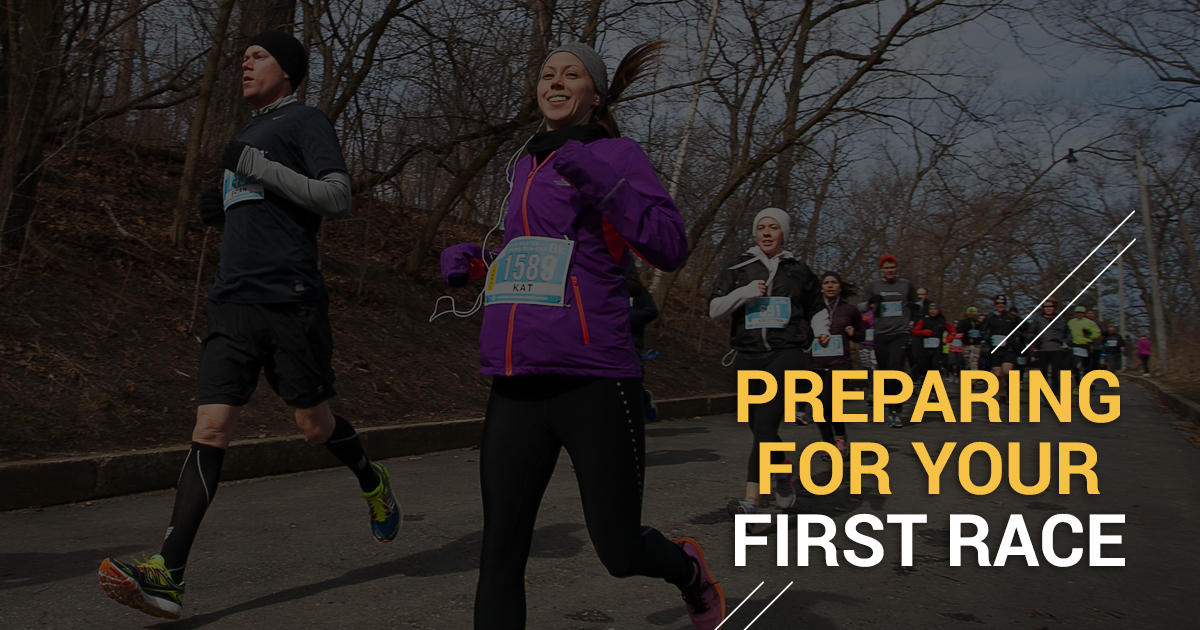
With race day approaching fast, it can be daunting if it’s your first one. There are so many tips and to-do lists all over the internet, but which ones are actually useful? Sometimes the lists are so long, the race prep becomes scarier than the race itself! Here are a few of our key preparation tips for running your first race:
The week before the race:
Stop stressing.
Races are meant to be fun. They’re great community events with an incredibly positive atmosphere for both runners and spectators. Locals line the course and cheer you on; volunteers take time to ensure your race experience is top-notch; and you get to celebrate accomplishing your own goals amongst other like-minded people. Race day is an exciting time! Even if it doesn’t pan out exactly as you had planned, soak in the experience and take what you’ve learned into the next race.
Cover the route beforehand.
Course tours are a great way of familiarizing yourself with what to expect on race day. Knowing what hills or tight turns there may be, will better prepare you and alleviate any unnecessary stress. If nothing else, it’ll prevent you from getting lost!
Get off your feet.
In the days before you race, try to stay off your feet as much as possible. Doing additional training in the week before a race won’t make you more fit, in fact it can just make you more tired. Relax, enjoy the taper knowing that the hard work is done!
Don’t carb load in one sitting.
The key to the carb-loading phenomenon is to gradually increase your carbohydrate intake in the few days before the race. Lower training volumes and higher carb consumption allows the muscles to store more fuel to be utilized on race day. Eating one massive bowl of pasta the night before a race won’t help your energy stores and can leave you feeling heavy and bloated.
Eat what works for you.
If you have a particular meal that you eat the night before long runs, or big workouts, that’s the meal you should have the night before the race. Trying anything new can put you at risk for GI distress during the race.
Pickup your bib the day before.
Your bib is one of your essentials for race day. Head to the race expo/package pickup as soon as you can to make sure you have everything you need. Pin it on whatever top you’ve decided on to be ready for race day morning.
Get ready the night before & stick to what you know.
Lay out your gear and know where your necessities are. Plan on wearing an outfit that you know doesn’t cause any irritation; prepare a race-day breakfast that you’ve had success with before; and don’t try out new shoes or race fuel on race day. Stick to what you know!
Catch those zzz’s.
Pre-race nerves can leave people feeling anxious and can interrupt their sleep. Rest east knowing that it’s actually the sleep you have two nights before a race that is the important one!
Race day:
Limit your fluid consumption.
The days leading up to the race are when you should be hydrating, but race morning isn’t the time to be chugging back fluids. Sip at water or electrolytes in the morning, but don’t go overboard.
Arrive early.
Having picked up your race bib the day of two before the race means that all you have left to do is warmup, use the washroom, and gear check anything you need to. There can be lines of people at the port-o-potties or gear check tents, so arrive with enough time to factor that in. You don’t need to start your race with a sprint to the start line.
Carry the essentials.
Don’t forget to carry a piece of ID, write your information on the back of your bib, and bring your credit card or cash in case something goes wrong. There are always plenty of volunteers and spectators along the race that will be able to help you, but you want to be overly prepared. Just in case.
Bring a garbage bag.
If it’s going to be a rainy day, garbage bags make for excellent throw away rain jackets. They’ll keep your running attire dry and warm, and can be thrown to the side once the race begins. Just make sure to go to the side of the road to toss your bag so you don’t hit anyone running behind/beside you.
Set a few goals.
Not every race is going to be spectacular, and it’s good to be prepared for that. After the months of training, it’s great to set a few goals: an A goal that could be achieved on a perfect day; a B goal that is reasonable is the conditions or your body is feeling sub-par; and a C goal that has nothing to do with your finishing time. That way, no matter what the day brings, there will be something positive to take away from it.
Start slow, and stay even.
It’s easy to go off the start line like a bat out of hell, but it’s important to keep your adrenaline in check and start conservatively. The first part of the race usually feels easy as your muscles are fresh and ready to go. If you start too fast, the time you’ve “banked” can come back to bite you in the butt later in the race when the fatigue sets in. Try and maintain an even pace, and if you’re feeling good, expend that remaining energy in the final stretch to the finish line.







